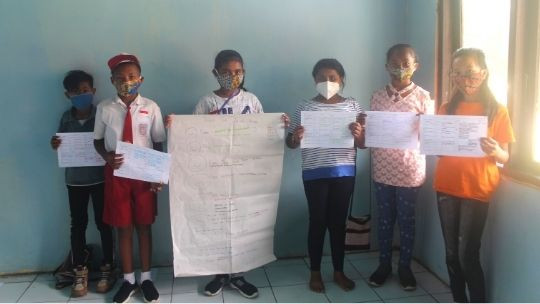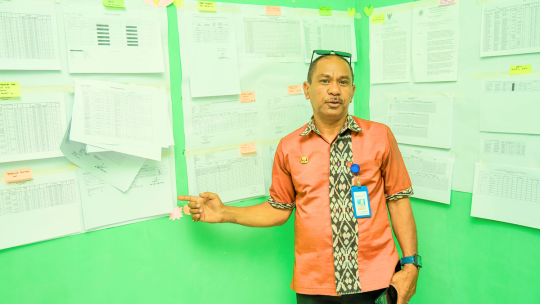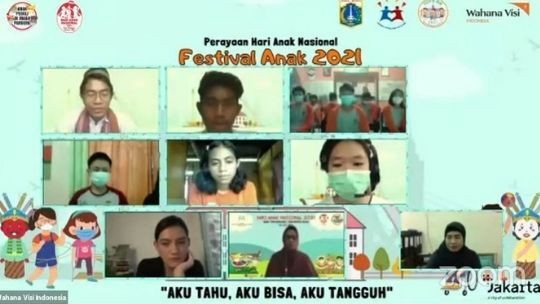Green Veggies and Green Line for Toddler’s Nutritional Need

Stunting remains an issue in Sekadau Regency, West Kalimantan. One of the root causes is the limited access to nutritious food, especially vegetables, for many villages. Parents of toddlers in Sekadau struggle to provide a balanced diet for their children daily due to their reliance to vegetable vendors.
"It's very difficult to get vegetables. We have to wait for the vegetable vendors to come to our village. Even then, the prices are quite high. My child often ends up eating whatever is available and often without vegetables," said Anita, a mother of a toddler in one of the villages.
This reliance on vegetable vendors weakens the food security of families in the villages. For families with toddlers, this can lead to children experiencing non optimal nutritional status. An unbalanced diet lacking protein, both plant-based and animal-based, can be a contributing factor to stunting among children in the villages.
The food security of families in the villages can be strengthened when families have easy and affordable access to food. Families in the villages should be able to eat a balanced and nutritious meal every time they eat, every day. This can be achieved by utilizing yards or vacant land around their homes to establish Nutritional Gardens.
Wahana Visi Indonesia (WVI), in collaboration with its partner Timang Kaseh and mothers of toddlers in the village, is working to establish communal Nutritional Gardens in the village. This is crucial to fulfill the hopes of every mother to provide nutritious and balanced meals easily and affordably.
In addition to facilitating the needs for cultivating Nutritional Gardens, WVI and Timang Kaseh also empower the knowledge of parents of toddlers and Posyandu cadres so that the vegetables planted can grow well and be successfully harvested.
"I tried planting vegetables at home before, but it wasn't successful, not satisfying. The vegetables were stunted. This is because I haven't received proper training on farming from our Agricultural Extension Workers," shared Anita, who is also the head of the Nutritional Garden group in the village.
To avoid experiencing the same failures, mothers of toddlers and cadres learn how to make seedbeds, use fertilizers, and care for the vegetables that have been planted. After the training, Anita and other mothers put their knowledge into practice by planting Nutritional Gardens in the church yard. They planted spinach, morning glory, mustard greens, and long beans.
With the right planting techniques, the Nutritional Garden in Anita's village had its first harvest with very satisfying results. Fresh and abundant vegetables could be cooked immediately at home.
"Our children can now consume nutritious and healthy vegetables because they are free from chemicals. Everything is organic. My child eats spinach with gusto and now his weight is increasing, and his status on the KMS is green," said Anita with joy.
In addition to meeting the needs of each household, the vegetables grown can also be sold. "From the leftovers that are distributed to the members of the Nutritional Garden, we sell some. The sales proceeds reach Rp 500,000. We will use this money to open up new land and buy more vegetable seeds," Anita continued.
The menu for children in the village is now more varied. Organic, cheap, and fresh vegetables can be cooked at any time. Mothers no longer have to worry whether their children will have a complete and nutritious meal today or not. The children also eat more eagerly because they are served delicious vegetables. The nutritional status chart for toddlers in Sekadau Regency will continue to move towards the green line as access to nutritious food is now available close to their homes.
Author: Firminus (Timang Kaseh staf, local partner for Sekadau Area Programme)
Editor: Mariana Kurniawati (Communication Executive)



